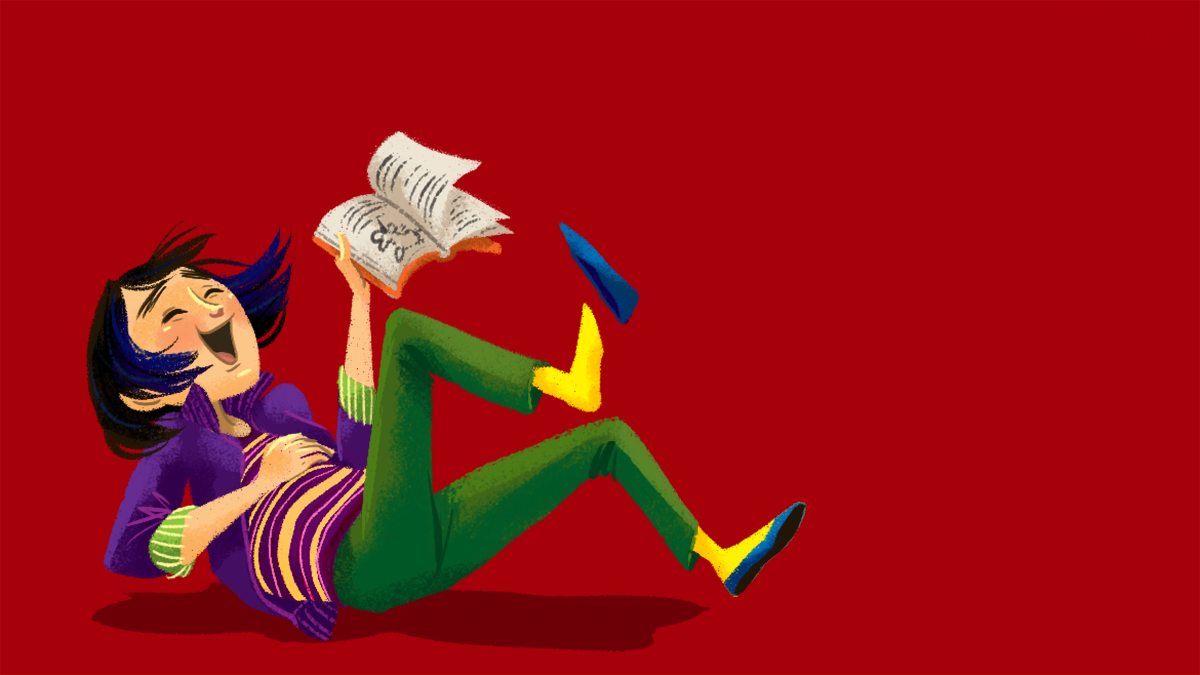Read our review of Wed Wabbit
Don't be fooled by the cutesy title. The particularly 'Wabbit' in the story is anything but sweet! Fidge is a clever, slightly cynical 11 year old who is flung into the world of her little sister Minnie's favourite story - the world of the Wimbley Woos.
Favourite funny books
A booklist
Some of the funniest books around are children's books, so you're in for a treat with these favourites below. Be careful, though - there's a danger of actual tears and serious stomach-hurt from doubling-over with laughter. Don't say we didn't warn you!







